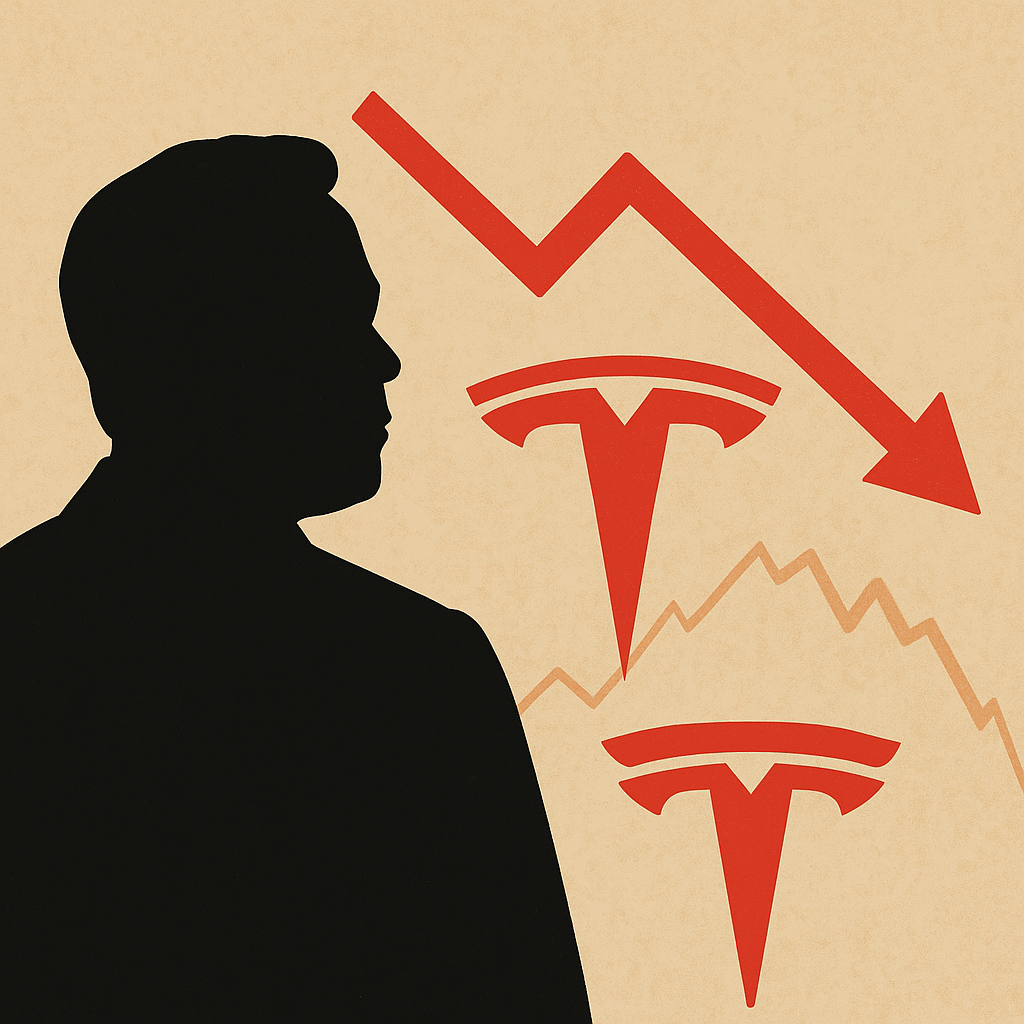In a week already charged with macroeconomic uncertainty, Tesla shareholders faced a shock of a different kind: Elon Musk announced the launch of his new political movement, the “America Party.” Within hours, Tesla’s market cap dropped by a staggering $68 billion, as shares tumbled nearly 7%, marking one of the largest single-day declines in 2025 for a tech mega-cap stock.
This event has reignited concerns about executive distraction, corporate governance, and the personal brand entanglement that defines Musk’s leadership, with ripple effects felt far beyond Tesla’s investor base.
Leadership Moves That Move Markets
According to Business Insider, Times of India, and Investors.com, the selloff followed Musk’s announcement during a televised address where he framed his political ambitions as a “long-term commitment to restoring American excellence.” However, investors were quick to question what this means for Tesla’s strategic focus, especially with the company navigating intensified EV competition and macroeconomic headwinds.
Tesla’s shares closed at $221.17, down 6.8%, wiping tens of billions off its market capitalization. Analysts at Wedbush Securities described the move as a “high-volatility trigger event,” noting that institutional investors have become increasingly sensitive to executive focus risk, especially in high-valuation tech stocks.
“This isn’t the first time Musk’s extracurricular ventures have raised eyebrows,” said Dan Ives, Managing Director at Wedbush. “But the timing, in the midst of an EV price war and an uncertain macro backdrop, couldn’t be worse.”
Why This Matters for Investors
The episode underscores a broader pattern of how founder-led companies, particularly those tied to iconic figures, are more exposed to personality-driven volatility. Tesla, which has seen remarkable growth over the past five years, owes much of its investor appeal to Musk’s visionary leadership — but it now faces the challenge of rebuilding confidence in strategic continuity.
Other Tesla-linked assets, such as options and ETFs like ARK Innovation ETF (ARKK), also saw notable drawdowns. Meanwhile, competitors like BYD, Ford, and Rivian experienced minor upticks, likely driven by speculative rotation in the EV segment.
In an environment where leadership signals are increasingly interpreted as forward guidance, Musk’s pivot to politics has triggered renewed scrutiny on:
- Board independence and oversight
- Succession planning
- Long-term capital allocation discipline
Tesla has not issued a formal press release addressing the potential impact of Musk’s political involvement on corporate governance or day-to-day operations.
Future Trends to Watch
- Institutional Holding Trends – Watch for quarterly 13F filings from major funds such as Vanguard, BlackRock, and State Street to gauge whether the selloff reflects short-term volatility or broader strategic repositioning.
- Retail Sentiment & Options Flow – According to MarketBeat, options volume in Tesla surged 150% post-announcement, suggesting a spike in short-term hedging and speculative positioning.
- Executive Governance Trends – This may spark broader discussions on leadership risk in other founder-driven companies, from Meta (Mark Zuckerberg) to Nvidia (Jensen Huang).
Key Investment Insight
Leadership credibility is a core intangible asset, and when it becomes clouded by external ventures, the consequences can be immediate and severe. Tesla’s selloff reminds investors that even market darlings are vulnerable when executive alignment is questioned.
Investors should:
- Reevaluate their exposure to founder-led firms lacking strong governance safeguards.
- Monitor whether Tesla’s operational performance remains on track during Q3 earnings.
- Consider diversifying across EV and clean-tech plays with more stable leadership and institutional transparency.
As executive decisions increasingly influence stock performance in real-time, staying informed is critical. Follow MoneyNews.Today for the latest insights into leadership risk, tech sector trends, and the evolving landscape of investor sentiment.





